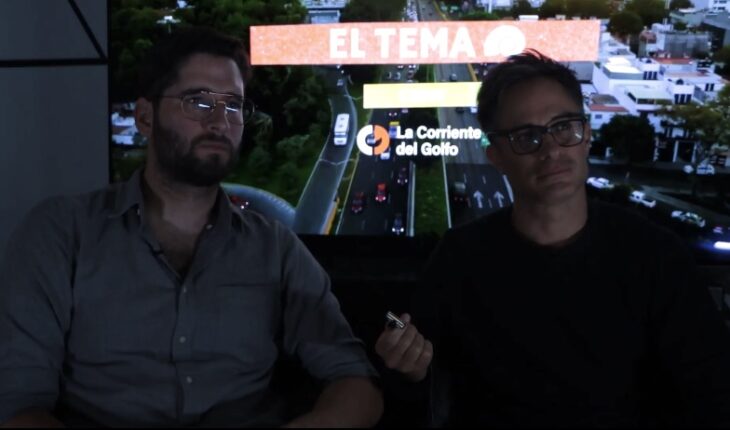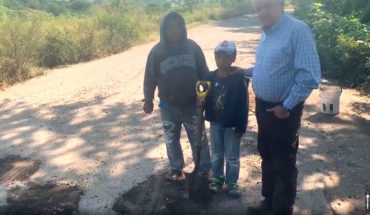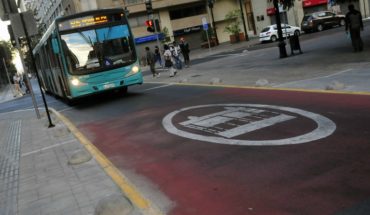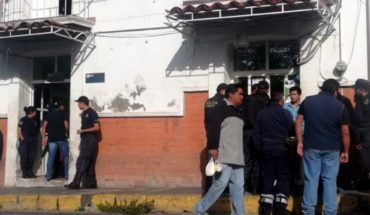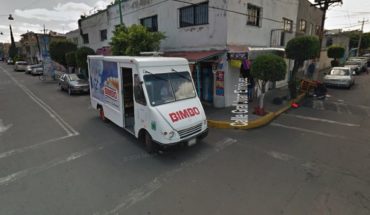Why is 40% of Mexico City’s water wasted in leaks? What is needed for the entire population to have access to this resource? How can air quality be improved in the capital? How can the energy consumption of the city be contained, with all the environmental effects it has?
These are some of the questions that the second season of The Theme, the documentary series with which the production company La Corriente del Golfo seeks to expose how the global climate emergency is experienced in the CDMX, although that is not its only purpose, say its creators.
Pablo Montaño, screenwriter of the serial, and Gael García, actor, host and executive producer, argue that their purpose is not only to show the environmental problems of the CDMX — like the first season of The Theme It did so at the national level—but also to put these issues in the public spotlight, and to get candidates vying for office in the coming years to incorporate them into their agendas.
“We hope this will be the main issue for the elections that follow. Will we be responsible for this happening? Hopefully. Hopefully the short films, hopefully the audiovisual expression makes this also accompany and serve as a catalyst or as an emollient of these changes, “says García.
Moreover, Montaño affirms that as a long-term objective it is not enough to exert pressure on political actors, since it is necessary to promote social organization from the community level so that concrete actions stop practices such as the overexploitation of resources.
“We have a political class with very little imagination. The answer or the solution and the provocation of finding these paths will hardly come from them,” says the screenwriter, and affirms that if 3% of the country’s population organizes, a process of change can be launched.
Read: COP 27, new call in the face of the climate crisis: what are the challenges and how does Mexico arrive?
Question: Was it a coincidence that you scheduled the screening of the documentary at the Cineteca Nacional one day before the start of COP 27 in Egypt (November 6)?
Pablo Montaño: It’s not a coincidence. When we were thinking about the release times of the documentary, we wanted to start coming out before the COP started. These are the two weeks in which the world remembers that there is a climate crisis with the potential to end the human race. So, putting issues on the table, putting concepts, putting problems before it came out was something important to which we aspired.
An idea that is repeated in the documentary is that concrete actions arise at the micro, community level. How do you think it is possible to articulate that level with the macro level of public policies, national or metropolitan?
Gael Garcia: The starting point has to be from the small, from the bubble to be able to talk about the whole, because argumentatively, narratively also things happen. When you want to cover the why, and here we return to an example that we have used a lot, why the Churubusco River is tubed, you start asking the question and you start to dissect it and you start to fragment it and you begin to find that there are many factors and many elements that, somehow, decided to make it or they forgot. Or anyway, there are many reasons. The principle is to unravel in some way, to break down how things happen and how that is happening, and from there we have been seeing that it is where the nuclei that receive the consequences of this crisis exist and are the first to find the solutions, the most incisive questions.
Then, one begins to accumulate the experiences and begins to generate a whole, and that whole begins to articulate with each other. There begins to be a movement where “Oh, look, we agree on this, we are thinking about the same thing, I was defending that there was no water here in my neighborhood, but suddenly I realized that I am becoming an environmental activist around water management in Mexico City.” Where perhaps do we see the big bump? Around the discussion. We come from a time when the path of progress was marked, we have to reinvent it, it is a paradigm shift, it is not easy… There are places in different parts of the world where this issue is already highly politicized. In Mexico not yet, in Mexico it is still very, very, very, incredibly green, or if not green, it is autumnal, in the sense that spring has to come.
Of the cases you mention in the series, are there any or some that you consider representative of how changes can occur?
Pablo Montaño: I think that beyond a silver bullet, such as “Ah, this applies to all cities, for all cases whenever there is a water problem it is like that”, what is a recipe or a constant at least, is people meeting to discuss a problem in order to organize and not take for granted the solutions or the answers offered by the political-social context. For example, I am sure that probably the only neighborhood in Mexico City that drinks tap water throughout the neighborhood is in Iztapalapa, where they have the least water supply, where they have dirty water, they have when it reaches them, if it reaches them, and there are people who organized to capture rainwater to make it drinkable with solar energy. to clean their soapy waters, to store it and always have water, in this place where the neighboring colonies do not have.
What did they achieve? Organize. That idea of organization could be exported to Chihuahua, but not the identical model, that I think is the key. The moment in which we find ourselves and understand that the territory we have around us is something with which we can interact and we can recover that relationship that at some point was broken, or that they gave it to us, maybe we did not have to break it but they already told you things work like that and period … But questioning and reinvention, imagination, not taking for granted that “No way, I was born in Iztapalapa and I have no water.” Organize. Sure, it’s easy to say, but doing so is a job that has taken this community 30 years.
Also in an interview, director Santiago Maza and linguist Yásnaya Aguilar agreed on the need for changes to emerge from the community level. PHOTO: Lizeth Ovando
Do you see the possibility that ‘The Issue’ becomes an issue on the table and puts candidates to discuss these issues in the next elections?
Gael Garcia: We’ve made bets a little bit about it… It has also been part of our slogan as almost, almost a kind of quantitative objective. It was as we expected this to be the main issue for the elections that follow. Will we be responsible for this happening? Hopefully. Hopefully the short films, hopefully the audiovisual expression makes this also accompany and serve as a catalyst or as an emollient of these changes. Sometimes it is an alchemy that has to be given, but I think I could say that, according to what I see, a little bit of how the world is being organized and how things are happening, if there is a voice and a voice emerges, even professional politics, with travel, that begins to talk about these issues, that begins to co-opt in some way this concern that shakes many people … If there starts to be someone who starts co-opting this, it’s going to generate a lot of movement about it, because others are not going to have any choice but to compete with that as well. It is a delicate issue obviously because it opens up many sensitivities, but without a doubt whoever wins would win better if they include this issue in their agenda.
Pablo Montaño: At the end of the day, we have a political class with very little imagination. The answer or the solution and the provocation of finding these paths will hardly come from them. We have to look for this 3% (of citizens). They have studied the social movements (to identify) from when is a point where the suffrage movement manages to put the conditions for it to change, where the civil rights movement in the United States, and it is estimated that more or less 3% of the population that has to be activated, not just agree, but to activate and be outside in the streets, organizing. If we achieve that 3% organization, we do not have to wait for the response of the political class. It is going to be carried by that group, it is going to be carried by this inertia that is already in the streets, that is already organized.
What we do at Animal Político requires professional journalists, teamwork, dialogue with readers and something very important: independence. You can help us keep going. Be part of the team.
Subscribe to Animal Político, receive benefits and support free journalism#YoSoyAnimal

